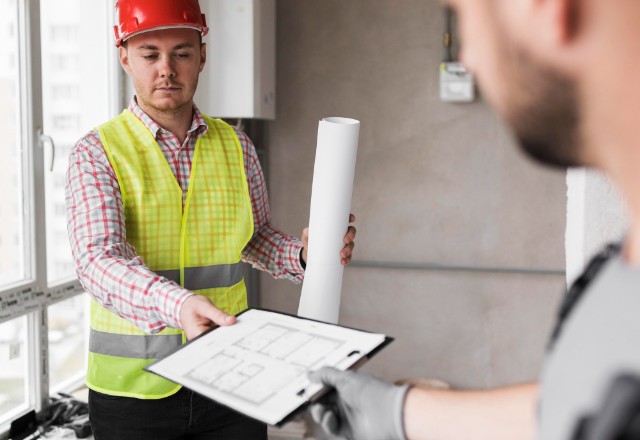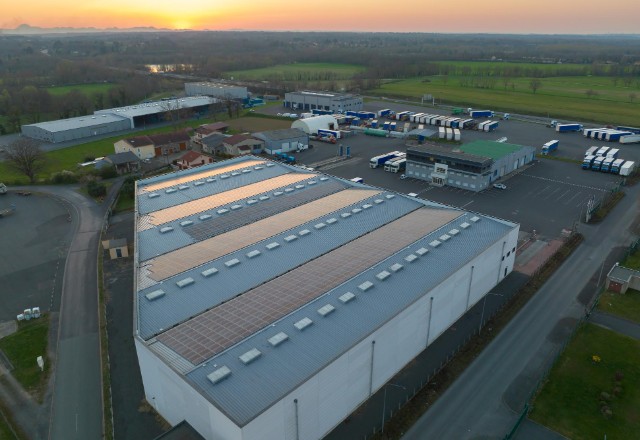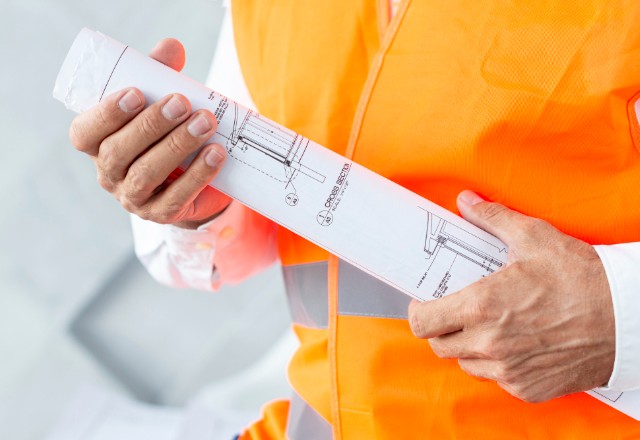Commercial roofing refers to the installation, repair, and maintenance of roofs on commercial buildings, such as offices, warehouses, retail stores, and other commercial properties. Due to the large size of commercial roofs and the unique challenges they present, it is important to hire experienced and reputable commercial roofing contractors for all roofing projects. In this article, we will discuss how to find quality commercial roofing contractors and what factors to consider when selecting the right company for your roofing needs.
Disclaimer: This article is intended to provide helpful information about commercial roofing contractors and materials. The content should not be interpreted as professional advice. If you require specific advice or assistance, please consult a qualified commercial roofing contractor in your area. Furthermore, any recommendations or links provided in this article are solely for informational purposes and do not constitute an endorsement of any services or products. Advance Roofing LLC has been proudly serving the Spokane, WA area for many years with the highest standard of quality roofing solutions.
Why Quality Matters for Commercial Roofing Projects
When it comes to commercial roofing projects, quality should be a top priority. A high quality commercial roof not only protects the building and its occupants, but it can also save the owner money in the long run. In contrast, a poorly installed or low-quality roof can lead to costly repairs, leaks, and other problems.
Here are a few reasons why quality matters for commercial roofing projects: 1. It ensures safety and protection for occupants.
A commercial roof that is compromised or leaking can put the building’s occupants at risk. Water intrusion can lead to mold growth, electrical hazards, and other safety issues. High-quality roofing materials and proper installation techniques provide added protection against these risks.
- It saves money in the long run.
While it may be tempting to go with the lowest bidder for a commercial roofing project, a low-quality roof will end up costing more in the long run. Repairs, replacements, and increased energy costs can add up quickly. Investing in a high-quality roof with proper installation and maintenance can save money over time.
- It improves energy efficiency.
A commercial roof that is properly installed with quality materials can improve energy efficiency. This can lead to lower energy bills and a smaller environmental footprint.
- It provides peace of mind.
A high-quality commercial roof provides peace of mind for building owners and facility managers. Knowing that the roof is properly installed and maintained can alleviate stress and worry about potential damage or leaks.
Finding the Right Contractor
When it comes to commercial roofing projects, finding the right contractor is key to ensuring a quality and successful project. With so many different contractors and options available, it can be overwhelming for building owners and facility managers to narrow down the choices. By focusing on key factors such as experience, reputation, and insurance coverage, finding the right contractor can be made easier. In this section, we’ll provide some tips and strategies for finding the right contractor for your commercial roofing project.
Research Online Reviews and Ratings

When it comes to finding a quality commercial roofing contractor, researching online reviews and ratings can be a valuable tool to help you make an informed decision. There are several popular online review websites that you can use to get started, such as the Better Business Bureau (BBB), Google My Business, and Yelp.
To begin your research, start by searching for the company’s name on these review websites. Read through the reviews and take note of any recurring issues or red flags mentioned by previous customers. Pay attention to the overall rating and the number of reviews, as these can give you a general idea of the company’s reputation.
It’s also important to check the company’s BBB rating and accreditation, if any. An accredited business has met certain standards of trust and integrity set by the BBB, which can give you added peace of mind. If the company is not accredited, read through their profile on the BBB website and see if there have been any complaints filed against them.
While online reviews and ratings can provide helpful insights, it’s important not to rely solely on them when choosing a commercial roofing contractor. Use them as a reference when narrowing down your list of potential contractors, and be sure to conduct thorough research and ask for references from past clients before making a final decision.
Ask Other Business Owners for Recommendations
When it comes to selecting the right commercial roofing contractor for your business, one of the best ways to gather information is by reaching out to other business owners in the area. They can provide valuable insights on their experiences working with local roofing contractors and help you make an informed decision.
By asking for recommendations from other business owners, you can gain valuable information about the quality of work provided, reliability, and overall customer satisfaction of a particular roofing contractor. They can also give you an idea of the professionalism and communication skills of the contractor, which can be crucial in ensuring the success of your roofing project.
Once you have gathered recommendations from other business owners, it’s important to do your own research. Look for online reviews and ratings from previous customers to get a better understanding of the contractor’s reputation. This can help you further narrow down your list of potential contractors and ensure that you are choosing the right one for your business’s needs.
Consider a Local or National Company
When searching for a commercial roofing contractor, you’ll likely come across both local and national companies. Choosing between the two options can be difficult as both offer distinct benefits and drawbacks.
A local company is often preferred due to its proximity to your business. This can make communication easier, as you’ll be able to have face-to-face meetings with the contractor when necessary. Additionally, local companies are often more familiar with the local building codes and regulations, making it easier to obtain the necessary permits for your roofing project.
Furthermore, local companies tend to be more invested in their communities and have a stronger commitment to quality work. By supporting a local business, you can feel good knowing that you’re contributing to the local economy and supporting local jobs.
However, there are also drawbacks to choosing a local company. They may not have access to the same high-end equipment and materials as larger national companies, which can affect the quality of their work. Moreover, local companies may not have the same level of liability insurance and compensation policies as larger companies, which can put you at risk if any potential damages occur during the roofing project.
On the other hand, national companies may have more access to high-end equipment and materials and can offer a wider range of commercial roofing solutions due to their larger size. They also often have a more extensive track record and experience in the roofing industry, which can provide peace of mind.
However, national companies may not have the same level of community commitment as local companies. They may not be as accessible and responsive to your business’s needs, and their higher overhead costs may translate into higher prices for their services.
Check Liability Insurance Coverage and Certifications
When looking for a commercial roofing contractor, it’s important to not only consider their experience and track record, but also their liability insurance coverage and certifications. These factors can ensure that your roofing project is completed safely, efficiently, and to high standards.
Liability insurance coverage is crucial in protecting both the client and the contractor from any damages that may occur during the roofing project. It provides financial coverage for any accidents or mishaps that may happen, such as property damage, personal injury, or even death. Without proper insurance, the contractor and client may be held liable for damages, resulting in costly legal battles. It’s essential to ensure that the roofer has both general liability insurance and workman’s compensation insurance.
General liability insurance covers the contractor in case of harm to people or property caused by the project. This insurance covers any legal fees, settlements, and judgments that may arise due to bodily injury, property damage, or personal injury claims during the roofing project.
Workman’s compensation insurance, on the other hand, provides medical benefits, lost wages, and rehabilitation to employees who suffer work-related injuries or illnesses. This insurance covers the roofing contractor’s employees in case of any accidents that may occur during the roofing project. Without proper workman’s compensation insurance, the client may be held liable for any injuries suffered by the contractor’s employees.
In addition to liability insurance coverage, it’s important to determine if the roofing contractor has the necessary certifications. Certifications indicate that the roofing contractor has undergone professional training and is knowledgeable in the latest roofing techniques. This ensures that your roofing project will be completed to high standards of quality and safety.
Get an Estimate and Written Contract

Getting an estimate and written contract from a commercial roofing contractor is an important step in ensuring that your roofing project is completed to your satisfaction. The following are the steps to follow when getting an estimate and written contract from a commercial roofing contractor:
- Find a contractor that offers free estimates
It’s standard in the roofing industry for contractors to offer a free estimate. Look for a contractor that offers this to avoid any upfront costs that aren’t necessary.
- Ask about their project estimating process
Before getting an estimate, ensure that the contractor asks for project details. Reputable contractors will ask for details about the roofing project to provide an accurate estimate. They will want to assess the roof’s condition, size, slope, height, and other factors that can affect the cost of the project.
- Review the written proposal
Reputable contractors will provide a detailed proposal that outlines the scope of work, project schedule, and payment terms. Ensure that the proposal is in writing, as verbal agreements are hard to prove if conflicts arise.
- Ensure the written contract includes all pertinent details
The written contract should include all important details, such as what’s included and what’s not included, payment methods, project timeline, and any warranty offered. Ensure that you read the contract thoroughly and ask any questions you may have before signing.
- Sign the written contract
Once you’ve reviewed and are satisfied with the written contract, sign it. The written contract will protect you from any potential disputes that may arise if anything goes wrong during or after the project.
In summary, when working with commercial roofing contractors, it’s important to get an estimate and written contract to ensure that the project is completed to your satisfaction. Reputable contractors will be transparent and provide detailed proposals that are easy to understand. Always read the written contract carefully before signing to avoid any misunderstandings or disputes in the future.
What to Expect from Working With a Commercial Roofing Contractor
Working with a commercial roofing contractor can be a daunting task, especially if you’re not familiar with the roofing industry. However, if you follow proper steps, you can easily find a quality commercial roofing contractor that can meet your roofing needs. In this article, we will explore some essential steps to take when working with a commercial roofing contractor.
Understand the Types of Materials Used in Roofs
One of the most critical decisions that commercial building owners must make is selecting the best material for their roofs. Different roofing materials have a varying lifespan, benefits, and drawbacks that influence durability, performance, and cost. Here’s a list of the most commonly used materials in the roofing industry, along with their estimated lifespan:
- Asphalt shingles – 20 to 25 years
- Metal roofs – 40 years or more
- EPDM (Ethylene Propylene Diene Monomer) – 20 years
- TPO (Thermoplastic Olefin) – 15 to 20 years
- PVC (Polyvinyl Chloride) – 30 years or more
- Built-Up Roofing (BUR) – 15 to 30 years
Asphalt shingles are one of the most popular roofing materials due to their affordability and ease of installation. They come in a variety of colors and textures, are easy to repair, and offer good fire resistance. However, they are susceptible to wind damage and algae and moss growth.
Metal roofs are durable and long-lasting, making them ideal for commercial applications. They come in a range of colors and styles and are fire and wind-resistant. They also improve energy efficiency by reflecting the sun’s heat. However, they can be noisy during heavy rains and hailstorms.
EPDM roofs are popular for flat roofs due to their flexibility and ease of installation. They are also resistant to UV rays and extreme temperatures, making them ideal for harsh environments. However, they lack puncture resistance and may require regular maintenance.
TPO roofs are an excellent option for energy-efficient and environmentally conscious building owners. They are resistant to UV rays, punctures, and chemicals and have better seam strength. However, they are not as durable as other materials.
PVC roofs are durable, energy-efficient, and resistant to chemicals and environmental hazards. They are easy to install, and their reflective surface keeps the building cool, reducing the energy costs. However, they may crack in extremely low temperatures and are more expensive than other materials.
BUR roofs use several layers of materials, including gravel and tar, to improve durability and waterproofing. They are flexible and can adapt to different roof slopes and shapes.
However, they are heavy to install, require regular maintenance and may not be suitable for roofs with heavy foot traffic.
In addition to the materials, the roofing system, and membranes, are also crucial in commercial applications. Roofing systems such as built-up roofing, modified bitumen, and single-ply membranes increase durability, waterproofing, and energy efficiency. Business owners must consider the specific requirements of their facility to choose the best option for their needs.
Know Your Options for Different Roof Systems

When it comes to roofing systems, there are a variety of options to choose from. The two most common types are flat and sloped roofs, which require different methods and materials for installation. In this article, we will explore the different roof systems available, their advantages and disadvantages, and the materials and installation process for each.
Built-Up Roofing (BUR) System
A built-up roofing system is composed of multiple layers of asphalt and felt, applied to create a durable and waterproof seal. They are commonly used for flat roofs in commercial buildings, but can also be used on sloped roofs as well. One of the advantages of BUR roofing is that it is resistant to UV rays, fire, and strong winds. However, because the system is composed of multiple layers, it can be heavy and difficult to install.
Single Ply Roofing System
A single ply roofing system is made of a single layer of synthetic material, typically either TPO (Thermoplastic Olefin) or PVC (Polyvinyl Chloride). They are easy to install and have a long lifespan, making them ideal for commercial buildings. They are also highly reflective, which can reduce energy costs. However, single ply roofing systems may not be as durable as other options, and they are more prone to puncture and damage.
Metal Roofing System
Metal roofing systems are ideal for sloped roofs and come in a variety of materials including aluminum, copper, and steel. They are highly durable, fire resistant, and can last for up to 50 years. Metal roofs are also lightweight and easy to install. However, they can be more expensive than other options, and may not be ideal for properties with poor insulation because they can transfer heat easily.
Modified Bitumen Roofing System
Modified bitumen roofing systems are similar to BUR roofing systems, but use modified asphalt. They are commonly used on flat roofs and can last up to 20 years. Modified bitumen roofing systems are easy to install and repair, and are resistant to UV rays and weather damage. However, they may not be as durable as other options, and can be more expensive than traditional asphalt roofs.
Green Roofing System
Green roofing systems are becoming increasingly popular for commercial buildings and involve a layer of soil and vegetation on the roof. They are highly durable, reduce the heat island effect in urban areas, and can improve air quality. However, green roofs can be expensive to install and require specialized maintenance.
In conclusion, there are many different roof systems available for commercial buildings, each with their own advantages and disadvantages. Understanding the materials and installation process for each option can help building owners make an informed decision about which system is right for their property.
Ensure That The Contractor Can Handle Any Special Requirements
When it comes to commercial roofing projects, it’s important to hire a contractor who can handle any special requirements that may be needed. These requirements could range from the building design and weather conditions to the placement of equipment on the roof. It is crucial that the contractor has experience and knowledge in handling these specific needs to avoid any potential complications or damage to the property.
When starting your search for a commercial roofing contractor, be sure to introduce any special requirements in the initial consultation. This will allow you to gauge the contractor’s experience with similar projects and how they plan to address them. A contractor with a track record of successful completion of similar projects is better suited to handle your specific needs.
It’s essential to explain the importance of finding a contractor who can handle your specific requirements. The wrong contractor may overlook critical elements of the project, leading to costly mistakes or improper installation. With proper communication and attention to detail, a professional contractor can complete your commercial roofing project on time and within budget.
To sum up, ensure that the contractor can handle any special requirements by introducing them in the initial consultation and asking about their experience with similar projects. Hiring a commercial roofing contractor who has experience and knowledge in handling your specific needs will save time, money, and prevent potential damages to your property.
Finalizing a Project with A Commercial Roofing Contractor

The final steps of a commercial roofing project are crucial in ensuring that the work has been completed satisfactorily. It’s important to communicate clearly with the contractor, review all work completed, and ensure that everything is up to code before making the final payment.
One of the recommended steps is to ask for a final inspection to be conducted by the contractor. This inspection will not only ensure that all work is up to code but also meets your expectations. It’s a chance to voice any concerns regarding the completed work and have them addressed promptly.
In addition to the final inspection, the contractor should provide you with any necessary paperwork related to the project. This could include a warranty or maintenance agreement that outlines the terms of the work done, including possible future repairs and costs. It’s important to keep a copy of all paperwork related to the project for future reference.
Once all of the work has been reviewed, inspected, and documented, it’s time to make the final payment to the contractor. However, it’s important to ensure that all work has been completed satisfactorily before making the final payment. By doing so, you can avoid any potential future disputes that might arise.
In conclusion, finalizing a commercial roofing project involves clear communication, careful review, and documentation of all work completed, inspection of the final work, receiving necessary paperwork such as warranty or maintenance agreement, and making a final payment post ensuring that all the work has been satisfactorily completed. By following these steps, you can have peace of mind knowing that the project has been completed successfully and up to code.
Conclusion
Finding the right commercial roofing contractor is essential to completing a successful project. It’s important to research potential contractors, introduce any special requirements during the initial consultation, and review all work completed before making a final payment. By following these steps, you can be confident in finding a reliable contractor who can handle your specific needs and complete your commercial roofing project successfully.



 509-201-4190
509-201-4190
